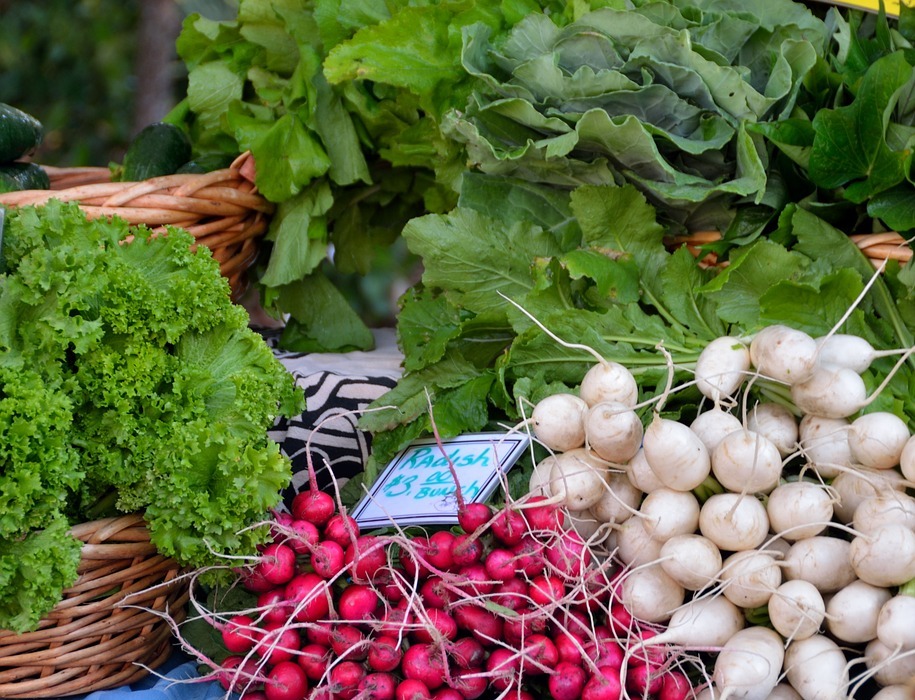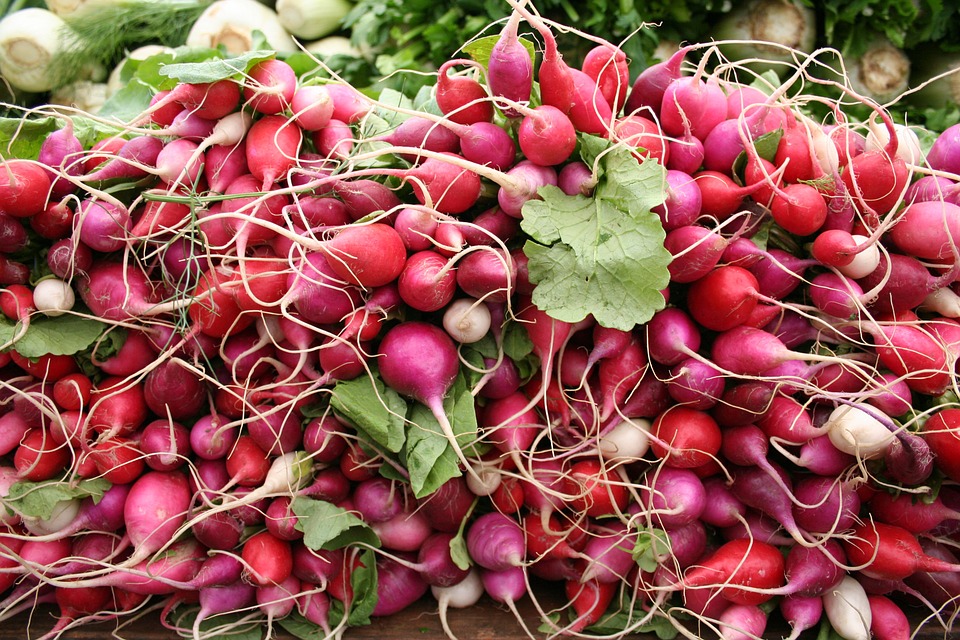This article delves into the safety of radish leaves for rabbits, exploring their nutritional benefits, potential risks, and offering detailed guidelines for safe consumption. We will consider the nutritional value of radish leaves, explore potential risks associated with their consumption, and provide specific advice on how to introduce them into your rabbit's diet safely.
Part 1: The Nutritional Value of Radish Leaves

1.1. A Powerhouse of Vitamins and Minerals
Radish leaves are a treasure trove of essential vitamins and minerals that can contribute to your rabbit's overall well-being. They are particularly rich in:
- Vitamin C: A potent antioxidant that bolsters the immune system, helping rabbits fight off infections and maintain overall health. A single cup of radish leaves provides a significant amount of vitamin C, contributing to their natural defences.
- Vitamin K: Essential for blood clotting and bone health, vitamin K ensures proper blood coagulation and promotes strong bones, especially important for growing rabbits. Radish leaves provide a good source of this vital nutrient.
- Vitamin A: Crucial for healthy vision, immune function, and maintaining healthy skin and coat, vitamin A plays a vital role in a rabbit's overall well-being. Radish leaves contribute to their daily intake of this essential nutrient.
- Calcium: A key component of strong bones, teeth, and plays a role in muscle function and nerve transmission. Radish leaves, while not as rich in calcium as some other greens, can contribute to your rabbit's overall calcium intake.
- Iron: Essential for red blood cell production and oxygen transport, iron plays a crucial role in maintaining healthy blood flow and energy levels. Radish leaves provide a decent amount of iron, which can benefit your rabbit's health.
- Potassium: Essential for regulating blood pressure, muscle function, and nerve transmission. It helps maintain proper fluid balance in the body, contributing to overall health. Radish leaves offer a good source of potassium for rabbits.
1.2. Dietary Fibre: A Crucial Component for Digestive Health
Radish leaves are a good source of dietary fibre, which is essential for maintaining a healthy digestive system in rabbits. Fibre plays several crucial roles:
- Stimulating Gut Motility: Dietary fibre promotes regular bowel movements, preventing constipation and ensuring a healthy digestive tract. This is particularly important for rabbits, who are prone to digestive issues.
- Supporting Gut Bacteria: Fibre acts as a food source for beneficial bacteria in the digestive system, contributing to a healthy gut microbiome. This plays a crucial role in overall digestive health and nutrient absorption.
- Promoting Satiety: Fibre helps rabbits feel fuller for longer, reducing the risk of overeating and contributing to a healthy weight. This is especially beneficial for rabbits prone to obesity.
Part 2: Potential Risks of Radish Leaves for Rabbits

2.1. Oxalates: A Potential Concern
Radish leaves contain oxalates, which can bind with calcium in the body, potentially leading to:
- Calcium Deficiency: Oxalates can interfere with calcium absorption, leading to a calcium deficiency. This can weaken bones, making them more susceptible to fractures, especially in growing rabbits.
- Kidney Stones: Oxalates can form crystals in the kidneys, potentially leading to kidney stones. These can cause discomfort, pain, and even kidney failure in severe cases.
2.2. Pesticide Residues: A Risk for Commercially Grown Radish Leaves
Radish leaves grown commercially might contain pesticide residues, which can be harmful to rabbits. While organic radish leaves are generally safer, always check for any potential contaminants and ensure they are thoroughly washed before feeding.
2.3. Allergic Reactions: A Possibility for Sensitive Rabbits
Some rabbits may be allergic to radish leaves, leading to a variety of symptoms such as:
- Skin Irritation: Itching, redness, and rashes can appear on the skin, especially around the mouth and ears, where the rabbit comes into contact with the leaves.
- Digestive Issues: Diarrhoea, vomiting, and bloating are common signs of digestive upset, indicating a potential allergic reaction.
- Respiratory Problems: Wheezing, coughing, and difficulty breathing can occur in some rabbits, indicating an allergic response affecting their respiratory system.
Part 3: How to Safely Introduce Radish Leaves into Your Rabbit's Diet
3.1. Start Slowly: Introduce Radish Leaves Gradually
Always start by offering a tiny amount of radish leaves, no larger than a fingertip, to your rabbit. Observe their reaction over the next few hours for any signs of adverse effects. If they seem to tolerate it well, you can gradually increase the amount over time.
3.2. Monitor for Signs of Allergies: Pay Attention to Any Adverse Reactions
Watch for symptoms of allergic reaction, such as skin irritation, digestive issues, or respiratory problems. If you notice any of these signs, discontinue feeding radish leaves and consult with your veterinarian.
3.3. Frequency and Quantity: Offer Radish Leaves as an Occasional Treat
If your rabbit tolerates radish leaves well, you can gradually increase the quantity and frequency of feeding. However, it's best to keep them as an occasional treat, rather than a staple food. Aim for a few small pieces once or twice a week, depending on your rabbit's size and individual needs.
3.4. Washing is Crucial: Thorough Cleaning is Essential
Always wash radish leaves thoroughly under running water to remove any dirt, debris, or potential pesticide residues. Consider soaking them for a few minutes in a bowl of cold water to ensure they are properly cleaned.
Part 4: Alternatives to Radish Leaves
4.1. Other Leafy Greens: A Variety of Nutritious Choices
There are many other safe and nutritious leafy greens that your rabbit can enjoy, offering a diverse range of vitamins and minerals. Consider offering:
- Parsley: High in vitamin C and iron, parsley provides a refreshing and healthy addition to your rabbit's diet. Offer it in moderation as a treat.
- Cilantro: Containing antioxidants and aiding digestion, cilantro can be a beneficial addition to your rabbit's diet. However, offer it in moderation as some rabbits may find it strong.
- Dandelion Greens: Rich in vitamins, minerals, and fibre, dandelion greens are a natural and nutritious choice for rabbits. Ensure they are collected from unsprayed areas.
- Spinach: Packed with vitamins A, C, and K, as well as iron, spinach provides a good source of essential nutrients for rabbits. Offer it in moderation as it can be high in oxalates.
- Kale: A good source of vitamin K, calcium, and fibre, kale can be a valuable addition to your rabbit's diet. However, offer it in moderation as it can be high in oxalates.
4.2. Fresh Herbs: Aromatic and Healthy Treats
Rabbits can also enjoy a variety of fresh herbs, adding flavour and nutritional benefits to their diet. Consider offering:
- Basil: Known for its calming properties, basil can be a relaxing treat for rabbits. Offer it in small amounts as it can be strong.
- Mint: Can help with digestion and fresh breath, mint is a popular and refreshing herb for rabbits. Offer it in small quantities.
- Dill: Rich in antioxidants and aiding digestion, dill can be a beneficial addition to your rabbit's diet. Offer it in moderation as some rabbits may find it strong.
- Thyme: Offering antibacterial and antifungal properties, thyme can be a valuable addition to your rabbit's diet. Offer it in small quantities as it can be strong.
Part 5: FAQs
5.1. Can Baby Rabbits Eat Radish Leaves?
It's generally not recommended to feed radish leaves to baby rabbits, as their digestive systems are still developing. Stick to a diet of hay, pellets, and fresh water. A veterinarian can advise on appropriate foods for baby rabbits.
5.2. Can I Feed Radish Leaves to My Pregnant or Nursing Rabbit?
It's best to avoid feeding radish leaves to pregnant or nursing rabbits. The oxalates and potential pesticide residues could be harmful to both the mother and her kits. Focus on providing a healthy diet of hay, pellets, and fresh water during these crucial periods.
5.3. Can I Feed Radish Leaves to Rabbits with Kidney Problems?
No, it's not recommended to feed radish leaves to rabbits with kidney problems. The oxalates in the leaves could exacerbate existing kidney issues. Consult with your veterinarian to determine the most appropriate diet for rabbits with kidney problems.
5.4. Are Radish Tops Safe for Rabbits?
Radish tops are essentially the same as radish leaves, so the same guidelines apply. They can be a nutritious treat, but they should be offered in moderation and with caution. Wash them thoroughly before feeding.
5.5. How Often Can I Feed Radish Leaves to My Rabbit?
If your rabbit tolerates radish leaves well, you can offer them as an occasional treat, perhaps once or twice a week. However, they should never make up a significant portion of their diet. Focus on providing a balanced diet primarily consisting of hay, pellets, and fresh water.
5.6. Can I Feed Radish Leaves to My Rabbit in the Winter?
While fresh radish leaves may be harder to find in the winter, you can try growing them indoors or purchasing them from a reputable source. However, be extra cautious about potential contaminants and ensure they are thoroughly washed before feeding.
5.7. Should I Consult My Veterinarian Before Introducing Radish Leaves?
It's always a good idea to consult your veterinarian before introducing any new foods to your rabbit's diet. They can provide personalized advice based on your rabbit's individual health and needs.
Part 6: Conclusion
Radish leaves can be a nutritious and enjoyable treat for rabbits, but it's crucial to proceed with caution. The oxalates they contain can pose risks to certain rabbits, especially those with kidney problems or pregnant/nursing rabbits. Always introduce new foods gradually, monitor for allergic reactions, and ensure you're providing a balanced diet with plenty of hay, pellets, and fresh water. By following these guidelines, you can help your rabbit enjoy the benefits of radish leaves while minimizing any potential dangers. Remember, a balanced diet is key to a healthy and happy rabbit!
Everyone is watching
-

Do Rabbits Lay Eggs? (The Surprising Truth)
OTHER TYPES OF PETSThis article will unravel the common misconception that rabbits lay eggs, exploring the fascinating world of r...
-

Can Rabbits Eat Grapes? A Guide to Safe Rabbit Treats
OTHER TYPES OF PETSThis comprehensive guide will explore the safety and suitability of grapes for rabbits, providing detailed inf...
-

What's a Group of Rabbits Called? (A Comprehensive Guide)
OTHER TYPES OF PETSThis article delves into the fascinating world of rabbits, exploring the various terms used to describe a grou...
-

Predators That Hunt Rabbits: A Guide to Natural Enemies
OTHER TYPES OF PETSI've always been fascinated by the circle of life, that delicate dance between predator and prey. Growing up ...
-

Are Rabbits Nocturnal Animals?
OTHER TYPES OF PETSThe question of whether rabbits are nocturnal animals is a fascinating one, with a surprisingly complex answer...
